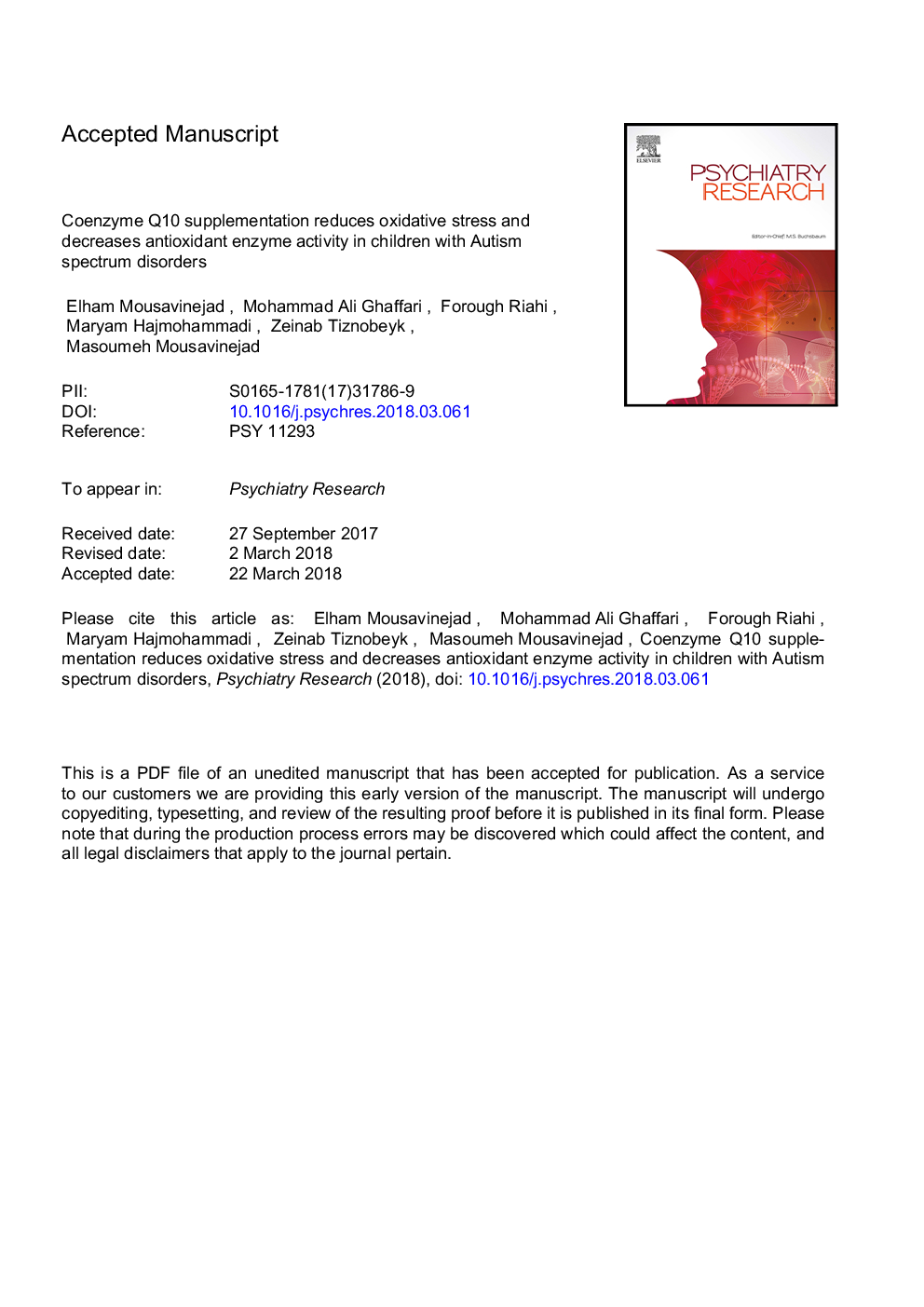| Article ID | Journal | Published Year | Pages | File Type |
|---|---|---|---|---|
| 6811377 | Psychiatry Research | 2018 | 25 Pages |
Abstract
Antioxidants and oxidative stress can participate in pathobiochemical mechanisms of autism spectrum disorders (ASDs). The aim was to identify the effects of early CoQ10 supplementation on oxidative stress in children with ASDs. Ninety children with ASDs were included in this study, based on DSM-IV criteria and using Childhood Autism Rating Scale (CARS) scores. Concentrations of CoQ10, MDA, total antioxidant status (TAS) assay, and antioxidant enzymes (superoxide dismutase or SOD and glutathione peroxidase or GPx) activity were determined in serum before and after 100 days of supportive therapy with CoQ10 at daily doses of 30 and 60â¯mg. Data on children's behavior were collected from parents and babysitters. CoQ10 supportive therapy was determined after three months with daily dose 2 ͯ 30â¯mg improved oxidative stress in the children with ASDs. A relation was seen between serum MDA (r2â¯=â¯0.668) and TAS (r2â¯=â¯0.007), and antioxidant enzymes (SOD [r2â¯=â¯0.01] and GPx [r2â¯=â¯0.001]) activity and CARS score. Based on the results, high doses of CoQ10 can improve gastrointestinal problems (Pâ¯=â¯0.004) and sleep disorders (Pâ¯=â¯0.005) in children with ASDs with an increase in the CoQ10 of the serum. We concluded that the serum concentration of CoQ10 and oxidative stress could be used as relevant biomarkers in helping the improvement of ASDs.
Related Topics
Life Sciences
Neuroscience
Biological Psychiatry
Authors
Elham Mousavinejad, Mohammad Ali Ghaffari, Forough Riahi, Maryam Hajmohammadi, Zeinab Tiznobeyk, Masoumeh Mousavinejad,
